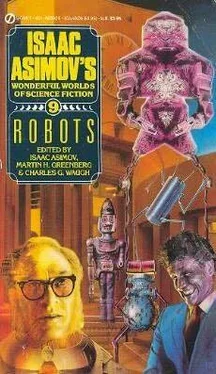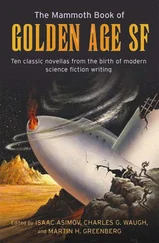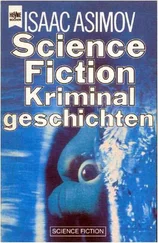Frederik Pohl - Isaac Asimov's Worlds of Science Fiction. Book 9 - Robots
Здесь есть возможность читать онлайн «Frederik Pohl - Isaac Asimov's Worlds of Science Fiction. Book 9 - Robots» весь текст электронной книги совершенно бесплатно (целиком полную версию без сокращений). В некоторых случаях можно слушать аудио, скачать через торрент в формате fb2 и присутствует краткое содержание. Год выпуска: 1989, ISBN: 1989, Издательство: Robinson Publishing, Жанр: Фантастика и фэнтези, на английском языке. Описание произведения, (предисловие) а так же отзывы посетителей доступны на портале библиотеки ЛибКат.
- Название:Isaac Asimov's Worlds of Science Fiction. Book 9: Robots
- Автор:
- Издательство:Robinson Publishing
- Жанр:
- Год:1989
- ISBN:ISBN: 1-85487-041-6
- Рейтинг книги:4 / 5. Голосов: 1
-
Избранное:Добавить в избранное
- Отзывы:
-
Ваша оценка:
- 80
- 1
- 2
- 3
- 4
- 5
Isaac Asimov's Worlds of Science Fiction. Book 9: Robots: краткое содержание, описание и аннотация
Предлагаем к чтению аннотацию, описание, краткое содержание или предисловие (зависит от того, что написал сам автор книги «Isaac Asimov's Worlds of Science Fiction. Book 9: Robots»). Если вы не нашли необходимую информацию о книге — напишите в комментариях, мы постараемся отыскать её.
Isaac Asimov's Worlds of Science Fiction. Book 9: Robots — читать онлайн бесплатно полную книгу (весь текст) целиком
Ниже представлен текст книги, разбитый по страницам. Система сохранения места последней прочитанной страницы, позволяет с удобством читать онлайн бесплатно книгу «Isaac Asimov's Worlds of Science Fiction. Book 9: Robots», без необходимости каждый раз заново искать на чём Вы остановились. Поставьте закладку, и сможете в любой момент перейти на страницу, на которой закончили чтение.
Интервал:
Закладка:
"The politicians have their worries, too. Faced with a new category of voters, all of them are wondering how to go about the job of winning the robot vote."
Knight turned it off and settled down to enjoy another bottle of beer.
"Good?" asked the beer robot.
"Excellent," said Knight.
The days went past. Tension built up.
Lee and the lawyer robots were given police protection. In some regions, robots banded together and fled into the hills fearful of violence. Entire automatic systems went on strike in a number of industries, demanding recognition and bargaining rights. The governors in half a dozen states put the militia on alert. A new show, Citizen Robot, opened on Broadway and was screamed down by the critics, while the public bought up tickets for a year ahead.
The day of decision came.
Knight sat in front of his television set and waited for the judge to make his appearance. Behind him, he heard the bustle of the ever-present robots. In the studio, Grace was singing happily. He caught himself wondering how much longer her painting would continue. It had lasted longer than most of her other interests and he'd talked a day or two before with Albert about building a gallery to hang her canvases in, so the house would be less cluttered up.
The judge came onto the screen. He looked, thought Knight, like a man who did not believe in ghosts and then had seen one.
"This is the hardest decision I have ever made," he said tiredly, "for, in following the letter of the law, I fear I may be subverting its spirit.
"After long days of earnest consideration of both the law and evidence as presented in this case, I find for the defendant, Gordon Knight.
"And, while the decision is limited to that finding alone, I feel it is my clear and simple duty to give some attention to the other issue which became involved in this litigation. The decision, on the face of it, takes account of the fact that the defense proved robots are not property, therefore cannot be owned and that it thus would have been impossible for the defendant to have stolen one.
"But in proving this point to the satisfaction of this court, the precedent is set for much more sweeping conclusions. If robots are not property, they cannot be taxed as property. In that case, they must be people, which means that they may enjoy all the rights and privileges and be subjected to the same duties and responsibilities as the human race.
"I cannot rule otherwise. However, the ruling outrages my social conscience. This is the first time in my entire professional life that I have ever hoped some higher court, with a wisdom greater than my own, may see fit to reverse my decision!"
Knight got up and walked out of the house and into the hundred-acre garden, its beauty marred at the moment by the twelve-foot fence.
The trial had ended perfectly. He was free of the charge brought against him, and he did not have to pay the taxes, and Albert and the other robots were free agents and could do anything they wanted.
He found a stone bench and sat down upon it and stared out across the lake. It was beautiful, he thought, just the way he had dreamed it-maybe even better than that-the walks and bridges, the flower beds and rock gardens, the anchored model ships swinging in the wind on the dimpling lake.
He sat and looked at it and, while it was beautiful, he found he was not proud of it, that he took little pleasure in it.
He lifted his hands out of his lap and stared at them and curved his fingers as if he were grasping a tool. But they were empty. And he knew why he had no interest in the garden and no pleasure in it.
Model trains, he thought. Archery. A mechanobiologic dog. Making pottery. Eight rooms tacked onto the house.
Would he ever be able to console himself again with a model train or an amateurish triumph in ceramics? Even if he could, would he be allowed to?
He rose slowly and headed back to the house. Arriving there, he hesitated, feeling useless and unnecessary.
He finally took the ramp down into the basement.
Albert met him at its foot and threw his arms around him. "We did it, Boss! I knew we would do it!"
He pushed Knight out to arm's length and held him by the shoulders. "We'll never leave you, Boss. We'll stay and work for you. You'll never need to do another thing. We'll do it all for you!"
"Albert-"
"That's all right, Boss. You won't have to worry about a thing. We'll lick the money problem. We'll make a lot of lawyer robots and we'll charge good stiff fees."
"But don't you see…"
"First, though," said Albert, "we're going to get an injunction to preserve our birthright. We're made of steel and glass and copper and so forth, right? Well, we can't allow humans to waste the matter we're made of-or the energy, either, that keeps us alive. I tell you, Boss, we can't lose!"
Sitting down wearily on the ramp, Knight faced a sign that Albert had just finished painting. It read, in handsome gold lettering, outlined sharply in black:
"And then, Boss," said Albert, "we'll take over How-2 Kits, Inc. They won't be able to stay in business after this. We've got a double-barreled idea, Boss. We'll build robots. Lots of robots. Can't have too many, I always say. And we don't want to let you humans down, so we'll go on manufacturing How-2 Kits-only they'll be pre-assembled to save you the trouble of putting them together. What do you think of that as a start?"
"Great," Knight whispered.
"We've got everything worked out, Boss. You won't have to worry about a thing the rest of your life."
"No," said Knight. "Not a thing."
Too Robot To Marry
by George H Smith
Father Charles looked up in surprise as the two robots came up the walk to the parish house and rang the doorbell.
Robots were common enough these days even in little Bridgeton but he still hadn't recovered from the shock of seeing them approach the rectory when they were shown into his study by the housekeeper.
"Father, these," the woman indicated them with one hand, "are L53 and L W 456. They want to speak to you."
"Ah, yes. Come in my… Come in and sit down," Father Charles had never been quite this close to one of the eight foot giants who did much of mankind's menial work. They were rather awe inspiring. "Do you sit down?"
The larger of the two, the one who had the white letters L 53 on its chest, spoke in a queer rasping voice. "Thank you, Father, but we are not equipped for sitting. That is one reason why you don't see us at mass on Sundays."
"Mass? you? I mean… are you Catholic?"
"Our former owner, Father, was Reverend Piere Henri, S. J. We were raised in the faith."
Father Charles was shocked. "Do you mean that Father Henri allowed you to partake of the sacraments? But… you're…"
"While we were with Father Henri, we made our first communion and were confirmed. We have tried to live in the faith since his death."
"You have?" Father Charles ran his hand through his hair. "Well… what do you want here now?"
"Lia and I would like for you to marry us, Father."
"Marry you? Marry you? Do you know what you're saying?" the priest exploded. "You're machines! You have no souls!"
"We wish to be married. We love each other."
"You are asking me to commit sacrilege. You were created by man and man cannot create souls."
"Father Henri thought that in our case the soul may have come with the dawning of sentience," L 53 said.
"Father Henri had some pretty heretical ideas for a Jesuit," Father Charles said angrily. "Go on back to your owners and forget this ridiculous idea."
"But Father, let me explain. We feel that we really must get married." There was pleading in the mechanical voice and an almost woman-like sadness in the eyes of the other robot.
Читать дальшеИнтервал:
Закладка:
Похожие книги на «Isaac Asimov's Worlds of Science Fiction. Book 9: Robots»
Представляем Вашему вниманию похожие книги на «Isaac Asimov's Worlds of Science Fiction. Book 9: Robots» списком для выбора. Мы отобрали схожую по названию и смыслу литературу в надежде предоставить читателям больше вариантов отыскать новые, интересные, ещё непрочитанные произведения.
Обсуждение, отзывы о книге «Isaac Asimov's Worlds of Science Fiction. Book 9: Robots» и просто собственные мнения читателей. Оставьте ваши комментарии, напишите, что Вы думаете о произведении, его смысле или главных героях. Укажите что конкретно понравилось, а что нет, и почему Вы так считаете.









